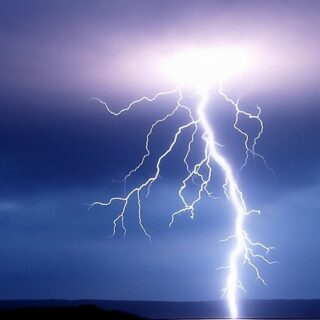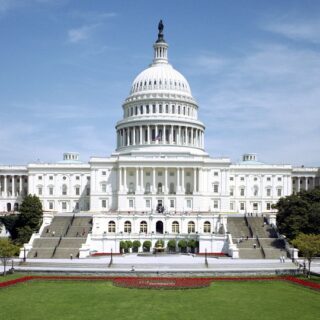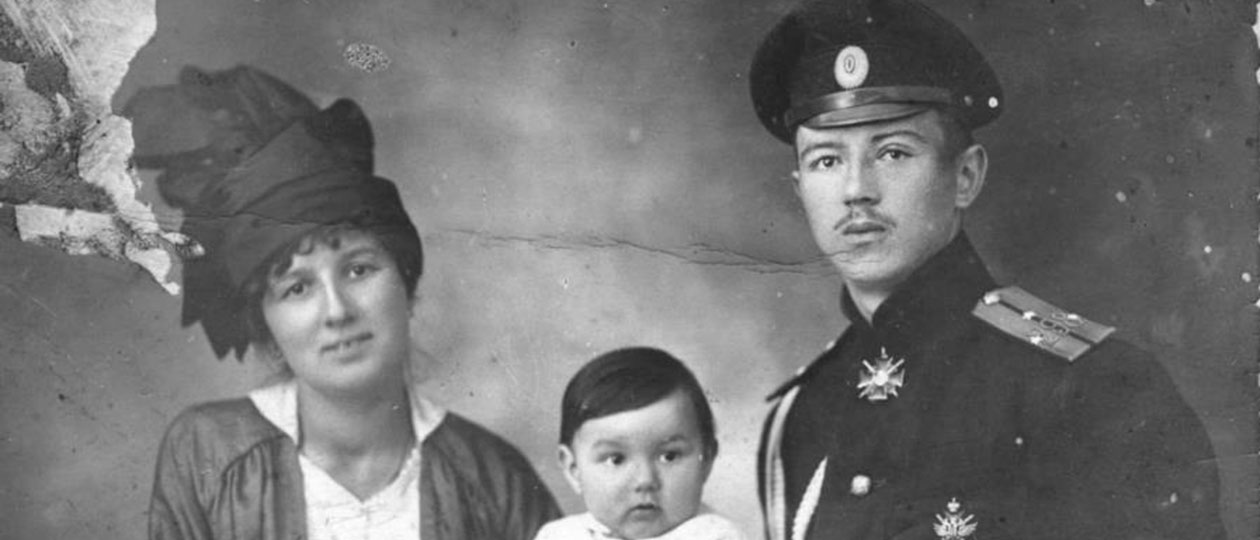
Nearly 69 million servicemen from 38 countries took part in the First World War, which began 110 years ago. Most of them were from Germany (13 million 250 thousand) and Russia – 12 million. The latter included two of my ancestors.
One of them, Nikolai (born in 1890), was the eldest son of my great-grandfather Afanasy Ilarionovich Reshetnikov, who perished in the Russo-Japanese War in 1905. Six years later Nikolai graduated with honors from the Alekseevskoye Military School and, with the rank of 2nd lieutenant, began serving in the 150th Taman Infantry Regiment.
The regiment was stationed in the Warsaw Military District in the territory of today’s Belarus. There, Nikolai met Evgenia Nemerovskaya, who taught in a parochial school for girls. They got married a year before the Great War, as WWI used to be called at that time, broke.
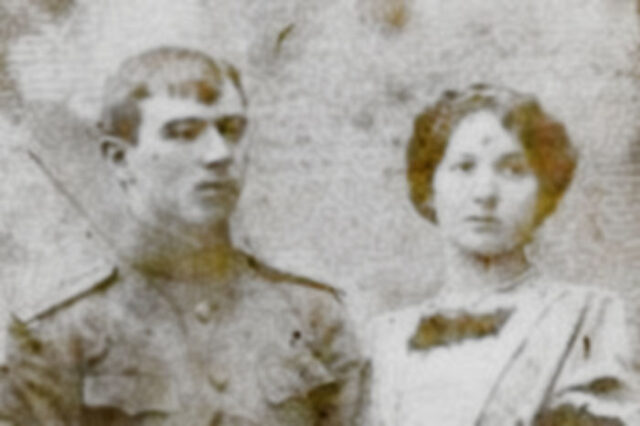
On the eve of that war, Nikolai was transferred to the 298th Mstislavsky Infantry Regiment, where he got the position of regimental adjutant responsible for combat logs. He did just that till the end of 1916, and thus he fully deserves to be called a chronicler of one of the greatest events in history that led to radical changes of human society, including Russia.
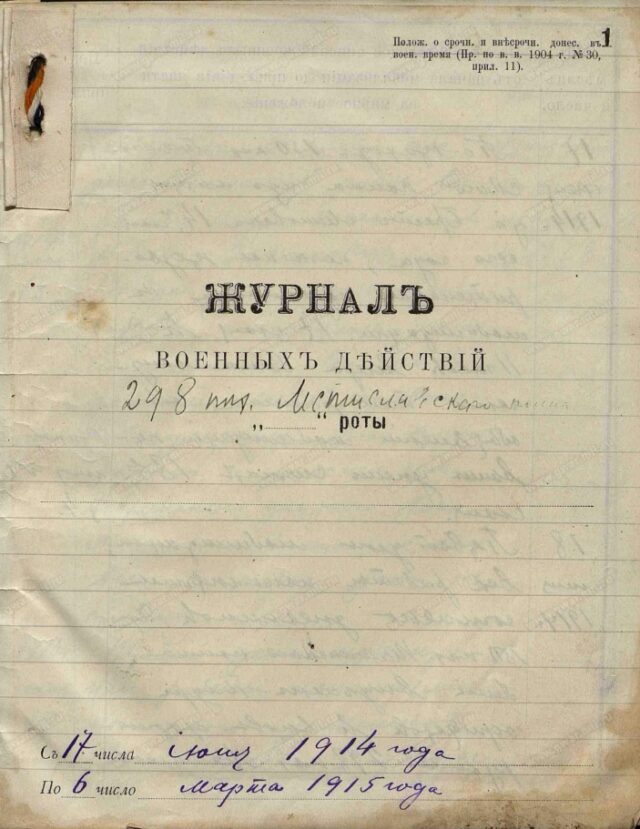
A few years ago, Russia’s Ministry of Defense paid a magnificent tribute to WWI participants by launching a special site where I found half a dozen combat logs filled in by Nikolai Reshetnikov. This enabled me to get a glimpse of his handwriting and writing style. It’s evident from these documents that he was a highly literate man which was pretty uncommon for Russian army of those times (in 1907, 617 out of every 1,000 Russian servicemen were illiterate).
Nikolai’s very first entry was made on July 30th, 1914: “At 11 p. m., we got a cable announcing mobilization since July 31st .” On August 3rd , he made another note: “We got a cable about Germany declaring war on us.”
A week later, his regiment was transferred to Brest. 27 years later, when the Great Patriotic War began, Soviet border guards and Red Army soldiers defended this city from German attacks for more than a month.
On August 19th, “an order was received for the regiment to relocate to Ivangorod”, a Polish city called Demblin today. There, Nikolai’s regiment received its baptism of fire and waged bloody battles for a whole year.
On the way to Demblin on August 21st , “around 2 p. m., a solar eclipse began, observed through smoked glass with great curiosity by the lower ranks.” This was a total solar eclipse visible in a great area extending from Riga to Minsk through Kyiv and ending in the eastern part of Crimea.
“During the most difficult moments of our history we were blessed to get positive heavenly signs,” commented Russia’s Niva magazine, reminding of the Battle of Kulikovo, when Russian victory over countless hordes of Tatars was also marked by a solar eclipse. However, many Russians perceived it as a bad sign. “The devil stole the sun,” some noted grimly.
On August 28th , “an order was received to occupy the combat areas and forts of the fortress” of Ivangorod. On the same day, 250 kilometers to the southeast, a bloody battle took place near the Polish village of Tarnoshin involving the 137th Nizhyn Infantry Regiment, in which Nikolai Reshetnikov’s brother-in-law, my grandfather Pyotr Vasilyevich Korchagin served as an ensign.
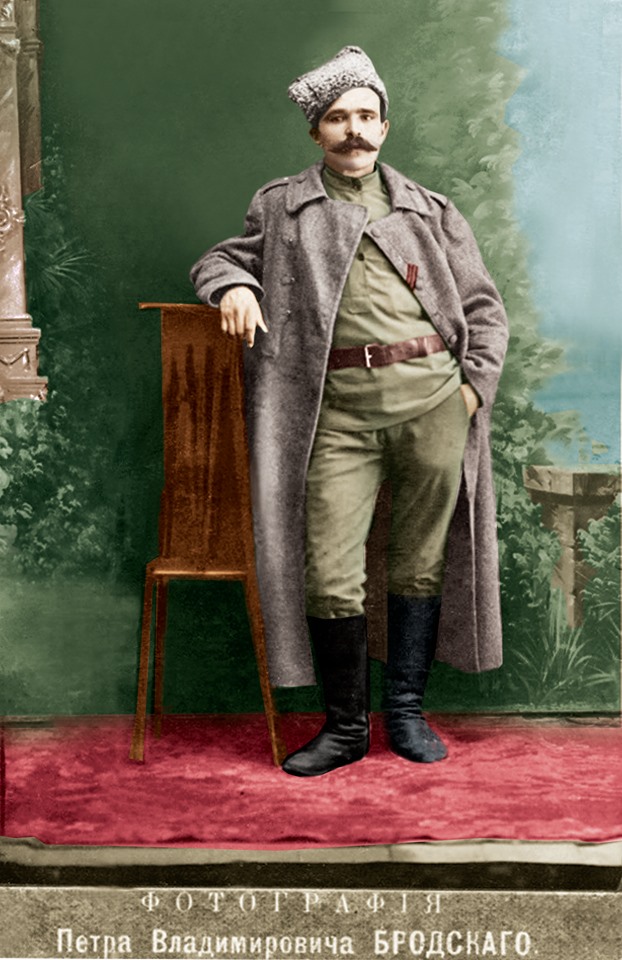
His regiment was part of the 35th Infantry Division, which suffered heavy losses in that battle. (36 officers and 1,093 soldiers were killed or wounded, and 1,100 more people were missing, and the Nizhyn Regiment lost three-quarters of its personnel). Pyotr Korchagin was wounded. He was awarded the St. George Cross of the 4th degree for his distinction in that battle.
A month and a half later, Nikolai Reshetnikov also earned his first combat award. “For courage shown while adjusting the fortress artillery fire in the battle of October 14th , 1914,” he was awarded the Order of St. Anne, 4th degree, with the inscription “for bravery.” In addition to the award, cavaliers of this order were given a sword or a sabre. Nikolai was photographed with these regalia.
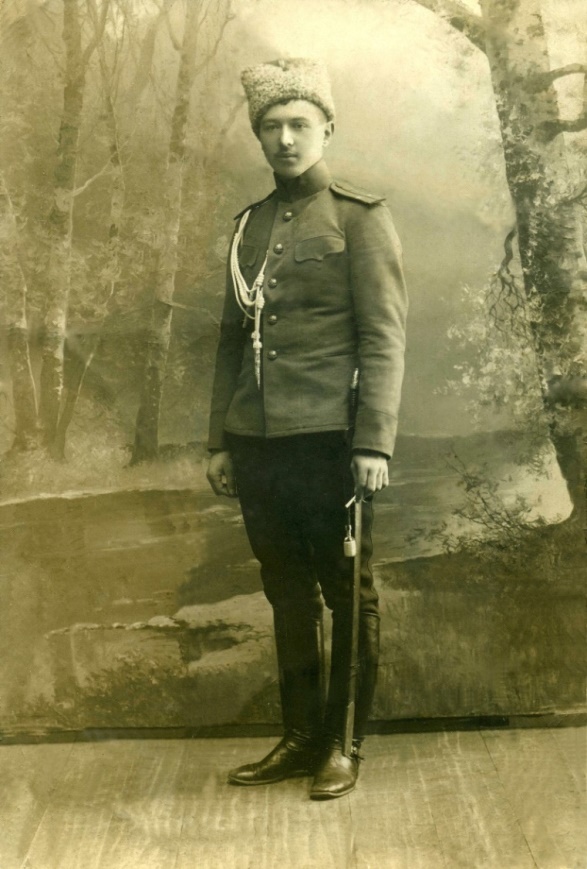
The defense of the Ivangorod fortress became an integral part of the largest military operation of the Russian army in autumn of 1914. Soon after Nikolai got his first award, he received the Order of St. Stanislav, 3rd degree, with swords and a bow “for courage and bravery in battles near the fortress of Ivangorod from October 15th to 22nd , 1914.”
And on November 2nd , 1914, for distinction in battles near the Polish villages of Polichna and Leshchy, Nikolai Reshetnikov was nominated for his third award – the Order of St. Anne, 3rd degree with swords and a bow.
Then, “for special distinctions shown in battles with the enemy from May 15th to June 1st , 1915,” he became a Knight of the Order of St. Stanislav, 2nd degree with swords.
Later on, “for participation in battles from August 30th to September 23rd , 1915“, Nikolai received his fifth officer award – the Order of St. Anne, 2nd degree. In those battles, his regiment lost more than 500 servicemen.
During WWI, my great-uncle was promoted twice in rank and in July 1916 he became a staff captain. Nikolai Reshetnikov’s further fate is shrouded in darkness. What I know for sure is that he managed to survive the terrible carnage of WWI.
In late 1917, together with his fellow officers he went to the south of Russia, where the Volunteer Army was formed to fight the Bolsheviks. Nikolai had one more reason to go there: at the beginning of WWI, his wife had moved to Rostov-on-Don, where she gave birth to their son Igor in January 1915.
In the list of “Participants of the White Movement in Russia“, Nikolai Afanasyevich Reshetnikov is listed as a captain of the 48th Lugansk Donetsk Cossack Foot Regiment who served in the Don Army and was awarded the Order of St. Vladimir, 4th degree, on November 10th , 1919.
Thus, during 9 years of army service, my great-uncle was promoted three times and got 6 military awards. This means that he could get an outstanding military career. However, during battles with the Red Army, the Don Army suffered heavy losses, and in February 1920 it was finally defeated. According to our family legend, my great-uncle died when he was only 29, leaving his wife a widow and their only son an orphan.
Igor Nikolaevich Reshetnikov continued their family tradition and became a 3rd generation officer. From October 1942 until the end of the Great Patriotic War, with his 247th Rifle Division, he went through a heroic combat path from Moscow to Berlin. In summer of 1944, he took part in the Lublin-Brest offensive operation which brought Igor Reshetnikov (what a fate!) to the same area where 30 years earlier his father had fought against the same enemy – the Germans.
Nikolai Reshetnikov’s only son was awarded the Order of the Red Star and the Order of the Patriotic War, 2nd degree, plus medals “For Military Merit” and “For Victory over Germany“. He finished his army service with the rank of major.



